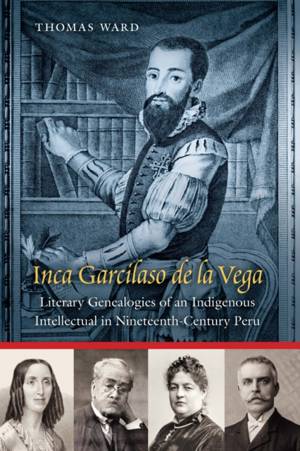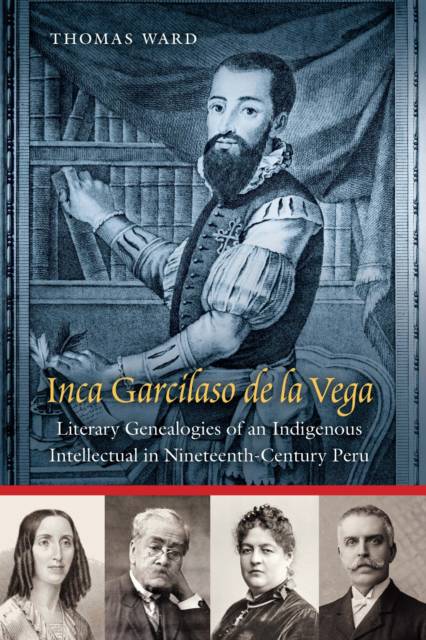
- Afhalen na 1 uur in een winkel met voorraad
- Gratis thuislevering in België vanaf € 30
- Ruim aanbod met 7 miljoen producten
- Afhalen na 1 uur in een winkel met voorraad
- Gratis thuislevering in België vanaf € 30
- Ruim aanbod met 7 miljoen producten
Omschrijving
Thomas Ward examines Inca Garcilaso de la Vega's seventeenth-century work and how it influenced post-independence Peruvian literature in the nineteenth century. As literati struggled to define their fledgling Peruvian Republic, they found inspiration in the dual-heritage author Garcilaso de la Vega's previously banned work, Royal Commentaries.
Ward focuses on four authors who turned back to the colonial-era chronicler Inca Garcilaso de la Vega as they synthesized Inkan tradition into modern national thinking: Juana Manuela Gorriti, Clorinda Matto de Turner, Manuel González Prada, and Ricardo Palma. An element of this cultural dynamic included gender awareness. At the time, women were accepted in the literary establishment much more than they would be in the following century, a fact Ward highlights in this study of the two most famous men authors and the two most famous women authors from this time period. In Inca Garcilaso de la Vega Ward brings gender and ethnic perspectives into a postcolonial discussion of a reality that was striving to establish "Peruvian" as a bona fide proper noun with substantive denotative and connotative meaning.
Specificaties
Betrokkenen
- Auteur(s):
- Uitgeverij:
Inhoud
- Aantal bladzijden:
- 330
- Taal:
- Engels
Eigenschappen
- Productcode (EAN):
- 9781496244376
- Verschijningsdatum:
- 1/04/2026
- Uitvoering:
- Hardcover
- Formaat:
- Genaaid
- Afmetingen:
- 152 mm x 229 mm

Alleen bij Standaard Boekhandel
Beoordelingen
We publiceren alleen reviews die voldoen aan de voorwaarden voor reviews. Bekijk onze voorwaarden voor reviews.







